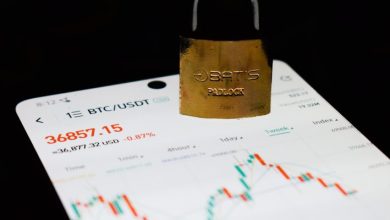The Role of Tokens in Gaming and Virtual Realities

- Understanding the concept of tokens in gaming
- The evolution of tokens in virtual realities
- How tokens are used for in-game purchases
- The impact of tokens on player engagement
- Exploring the economics of virtual tokens
- Tokenization and its role in shaping the future of gaming
Understanding the concept of tokens in gaming
Tokens in gaming refer to virtual objects or currency that hold value within a game or virtual reality environment. These tokens can be earned through gameplay, purchased with real money, or exchanged for other in-game items. Understanding the concept of tokens is essential for players to navigate the virtual world effectively.
In gaming, tokens serve various purposes, such as unlocking new levels, purchasing upgrades, or customizing characters. They act as a form of reward for players’ achievements and progress in the game. By accumulating tokens, players can enhance their gaming experience and access exclusive content.
Players can also trade tokens with other players or use them in virtual economies to buy and sell goods and services. This adds a layer of complexity to the gaming experience, as players must decide how to best utilize their tokens to advance in the game strategically.
Overall, tokens play a crucial role in gaming and virtual realities, providing a means of value exchange and progression for players. By understanding the concept of tokens and how to acquire and use them effectively, players can enhance their gaming experience and immerse themselves more fully in the virtual world.
The evolution of tokens in virtual realities
The use of tokens in virtual realities has evolved significantly over the years. Initially, tokens were simply used as a form of in-game currency, allowing players to purchase items and upgrades within the game. However, as virtual reality technology has advanced, the role of tokens has expanded beyond just being a currency.
Now, tokens are used for a wide range of purposes in virtual realities. They can represent ownership of virtual assets, such as land, buildings, or even entire virtual worlds. Players can trade tokens with each other, creating a real economy within the virtual world. This has led to the rise of tokenized assets, where real-world assets are represented by tokens on the blockchain.
The evolution of tokens in virtual realities has also led to the concept of tokenized identities. Players can use tokens to prove their identity within the virtual world, allowing them to access certain areas or services based on their token holdings. This has created a new level of immersion and personalization in virtual realities, as players can customize their experience based on their token holdings.
Overall, the evolution of tokens in virtual realities has transformed the way we think about in-game economies and virtual assets. Tokens are no longer just a form of currency – they are a key component of the virtual ecosystem, enabling new forms of ownership, trade, and identity within virtual worlds. As virtual reality technology continues to advance, we can expect tokens to play an even larger role in shaping the future of gaming and virtual experiences.
How tokens are used for in-game purchases
In-game purchases using tokens are a common feature in many gaming and virtual reality platforms. These tokens act as a form of virtual currency that players can use to buy various items, upgrades, or enhancements within the game. Tokens can be earned through gameplay, purchased with real money, or acquired through other means such as completing challenges or watching ads.
Players can use tokens to unlock new levels, buy special abilities, customize their characters, or access exclusive content. This adds a new layer of strategy and customization to the gaming experience, allowing players to tailor their gameplay to their preferences. Additionally, tokens can also be used to speed up progress or bypass certain challenges, providing a way for players to enhance their gaming experience.
By incorporating tokens for in-game purchases, game developers can create additional revenue streams while also enhancing player engagement. Players are incentivized to earn or purchase tokens to access new content and improve their gameplay, leading to increased time spent in the game. This system of token-based purchases has become a popular and effective way for developers to monetize their games while providing value to players.
Overall, tokens play a crucial role in the gaming and virtual reality landscape by offering a flexible and convenient way for players to enhance their gaming experience. Whether used for unlocking content, customizing characters, or speeding up progress, tokens provide a valuable currency that adds depth and excitement to the gaming experience.
The impact of tokens on player engagement
When it comes to gaming and virtual realities, tokens play a crucial role in engaging players and enhancing their overall experience. Tokens provide a sense of progression and accomplishment as players earn them through various in-game activities. This system of rewards keeps players motivated and invested in the game, driving higher levels of engagement.
By offering tokens as rewards for completing challenges or reaching milestones, game developers create a sense of achievement that encourages players to continue playing. This positive reinforcement loop keeps players coming back for more, increasing their overall engagement with the game.
Moreover, tokens can also be used to unlock new content, such as levels, characters, or items, incentivizing players to explore all aspects of the game. This not only adds to the replay value of the game but also keeps players engaged for longer periods of time.
Exploring the economics of virtual tokens
In recent years, the economics surrounding virtual tokens in gaming and virtual realities has become a topic of great interest. These digital assets have transformed the way players interact with games and virtual environments, creating new opportunities for developers and players alike. Let’s explore the various economic aspects of virtual tokens:
One of the key factors driving the popularity of virtual tokens is their ability to create a new revenue stream for game developers. By offering virtual tokens for purchase, developers can generate additional income beyond the initial purchase price of the game. This has led to the rise of free-to-play games that rely on virtual tokens for monetization.
Virtual tokens also play a crucial role in creating a sense of scarcity and exclusivity within games. By limiting the availability of certain tokens, developers can create a sense of value and rarity that drives players to engage more deeply with the game. This can lead to increased player engagement and retention over time.
Furthermore, virtual tokens can serve as a form of in-game currency that allows players to purchase virtual goods and services. This can range from cosmetic items like skins and emotes to functional items that enhance gameplay. By offering a wide range of virtual goods for purchase, developers can cater to different player preferences and play styles.
Overall, the economics of virtual tokens in gaming and virtual realities are multifaceted and continue to evolve as technology advances. As developers and players alike explore new ways to incorporate virtual tokens into games, the role of these digital assets is likely to become even more prominent in the future.
Tokenization and its role in shaping the future of gaming
Tokenization is revolutionizing the gaming industry by introducing new ways for players to interact with virtual worlds and assets. By representing in-game items, currencies, and other digital assets as tokens on a blockchain, developers can create unique, tradable assets that players can truly own. This shift towards tokenized gaming is reshaping the future of gaming and virtual realities.
One of the key roles of tokenization in gaming is enabling players to truly own their in-game assets. Rather than being limited to using items within a specific game or platform, players can now trade, sell, and exchange their tokens across different games and platforms. This creates a new level of interoperability and value for players, as they can leverage their assets in various ways.
Tokenization also opens up new opportunities for developers to create unique gaming experiences. By tokenizing in-game assets, developers can introduce scarcity, provable ownership, and verifiable authenticity to their games. This can lead to new gameplay mechanics, economic systems, and player interactions that were previously not possible.
Moreover, tokenization can also help combat issues such as fraud, cheating, and counterfeit items in gaming. By using blockchain technology to verify ownership and transactions, players can trust in the authenticity and scarcity of their digital assets. This can lead to a more secure and transparent gaming ecosystem for all participants.



